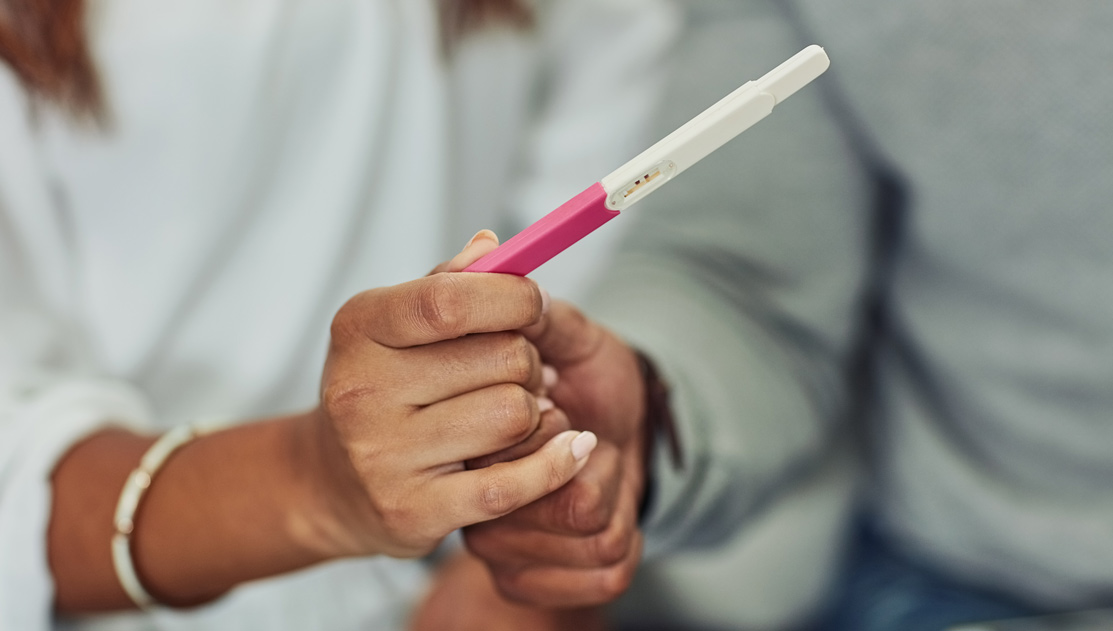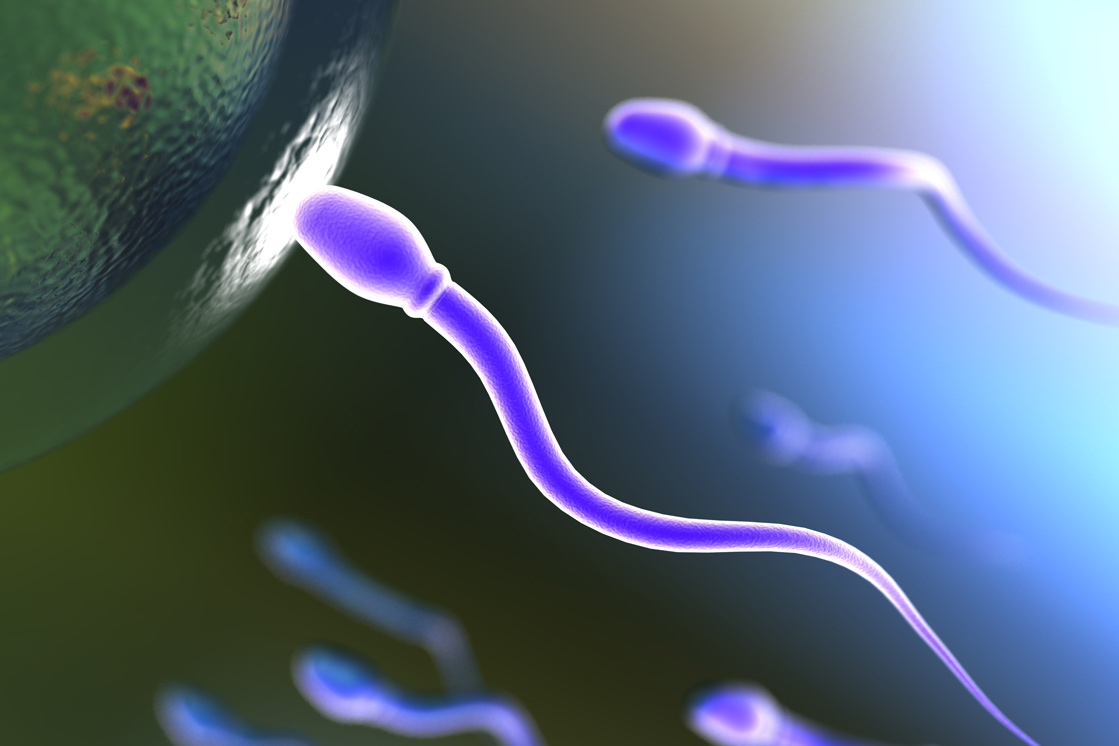Wanting to know about improving fertility in your 40s? There are many reasons you may not have been ready to start a family until now, from not having met the right partner before, to wanting career progression and financial stability before the pressures of supporting a family kick in. Or perhaps you’ve already had kids, are looking to add to your brood and want to know how to get pregnant at 40 fast.
Whatever your situation, know that while many women do have babies in their forties, it is certainly more challenging from a biological perspective. So how many eggs does a woman have at 40? What are the chances of getting pregnant at 40 and what are the key tips for improving fertility in your 40s? Read on and we explain.
The truth about fertility in your 40s
It’s important to tell the truth about age and fertility. And the truth is, age is the single biggest factor affecting female fertility. (And it absolutely affects male fertility too).
A woman is born with all the eggs she will ever have. While during her menstruating years, generally one egg per cycle will mature and be released, other eggs die continually. A girl may be born with 1-2 million eggs but by the time she is 40, that number is thought to be around 5000-10000. As a woman ages, the quality of her eggs declines too. And while a couple aged 30 having unprotected sex tends to have around a 20% chance of conceiving each month, by the time a woman is 40 that figure has dropped to 5%. The fertility downward curve that begins in a woman’s thirties, sharpens after age 35 and becomes steeper still in her 40s.
In addition, the risk of miscarriage sharply increases in the 40s. While the average woman in her 20s has about a 15% risk of miscarriage, this risk has climbed to around 40% by the time she is 40.
Male fertility begins to decline in the 40s too (albeit more slowly). Advancing paternal age is associated with lower sperm quality and testicular function, in addition to chromosomal abnormalities and genetic diseases. (And keep in mind chromosomal abnormalities in the embryo/foetus are what is most often responsible for miscarriage). Despite what many people think, the male biological clock exists too.
Of course, many couples in their 40s will conceive naturally and go on to have successful pregnancies and healthy babies. But it is important to tell the truth about how age affects your chances because knowledge is power and time is fertility – including when it comes to the success of fertility treatments. For couples in their 40s, if there is a problem that may require assisted conception techniques, it is better to know sooner rather than later. That is where fertility testing comes in.
So, be aware of how age affects fertility and keep one eye on the clock. But if you’re looking at improving fertility in your 40s there are still absolutely things you can do. Read on for 10 tips for improving fertility in your 40s.
10 tips for improving fertility in your 40s
At any age, doing all you can to improve your fertility is important – but particularly in your 40s because it can be such a difficult time to conceive. What we offer here are suggestions backed by science on how to give yourself the best possible chance. But of course there are never any guarantees, especially in your 40s – so when in doubt, get checked out.
The suggestions here are applicable to those undergoing assisted conception too, because whether you are trying to conceive ‘naturally’ or via fertility treatment, doing all you can to get your body baby-ready can only help. Here are 10 tips for improving fertility in your 40s.
1. Have plenty of sex!
It may sound obvious but when you consider that a couple aged 30 has a 20% chance of conception each cycle compared to a 5% chance aged 40, getting plenty of sex when you’re not menstruating can’t hurt – especially since your menstrual cycle might be less predictable in your 40s.
2. Enjoy moderate exercise
Moderate exercise is good for your heart and lungs, not to mention your stress levels and hormonal balance – which are super important when you’re trying to get pregnant. Just be mindful not to overdo it. Vigorous exercise, especially if you are already at a healthy weight, can be disruptive to your menstrual cycle. Swimming, cycling and walking are wise options.
3. Get some good shut-eye
Quality sleep and general health are intimately intertwined. As we sleep, our bodies are restocking our energy, repairing our cells and generating essential reproductive hormones. If you have tended to sleep poorly, try improving your ‘sleep hygiene’ by creating a calm and restful space in the bedroom, getting off screens 2 hours before bed, and unwinding properly in the evening hours before lights out.
4. Stop drinking
Everybody knows to stop drinking during pregnancy but did you know it’s a good idea to cut out booze if you’re trying to get pregnant? Studies have demonstrated links between lowered fertility and alcohol consumption. So if you’re keen to be improving fertility in your 40s, dust off that Nosecco bottle or mocktail menu.
5. Quit smoking and/or vaping
Research has demonstrated that smoking is associated with a greater risk of infertility. And although vaping is relatively new and still requires much more study, chemicals known to be detrimental to fertility tend to be present in vape aerosols, and there are significant worries about the effect of e-cigarette consumption on fertility. If you’re focusing on improving fertility in your 40s (or any age), you absolutely should stop smoking or vaping.
6. Limit your chemical exposure
Increasingly, science is discovering that the chemicals found in many of our everyday household plastic or perfumed products may be detrimental to both male and female fertility (as explained in our blog on plastics and fertility here). It’s important to keep things in perspective and not stress yourself out about it though, because stress never helps. In our modern world it is impossible to keep away from these chemicals completely. But there are some simple ways to cut down your exposure. For instance, switch to plant-based cleaning sprays, never microwave plastic containers, throw out that plastic coffee cup and switch cling film wrapping for foil.
7. Make sure any health conditions are properly managed
Did you know that a host of health conditions you might think have nothing to do with fertility can affect your ability to conceive and/or carry a baby to term – for example diabetes and high blood pressure? If you have a known health problem, or a niggle that you’ve been concerned may warrant a diagnosis, get to your doctor to get it under control. Improving fertility in your 40s means improving health generally.
8. Take your supplements and make your plate fertility-friendly
Proper vitamin supplementation is helpful not just in pregnancy but for improving fertility in your 40s generally. A recent study found that 90% of pre-conception women had ‘marginal or low levels’ of nutrients believed to be key to healthy foetal development and fertility, such as vitamin D, folate, and vitamin B12. If you’re looking to conceive, sourcing good quality fertility supplements is a great idea.
Expansive studies on the relationship between nutritional intake and fertility have affirmed the importance of diet when you’re trying to conceive. For example, one recent wide-scale review summated that following a healthy diet with lots of seafood, vegetables and fruits, whole grains and poultry is connected to superior fertility in both women and men.
Here at The Fertility and Gynaecology Academy, our patients can work with an experienced Natural Health Coach, Viktoriya Khoma, who helps couples fine-tune lifestyle elements such as nutrition (including the appropriate supplements) as well as things like stress management, to help you achieve your fertility goals.
9. Men: Don’t let your testes get too toasty
In addition to the other recommendations which apply to men as well, male partners can take extra steps to help their sperm health by trying to maintain optimum conditions for the testicles. For instance by opting for baggy boxer shorts and avoiding hot baths.
10. Get a fertility check
Dr Gorgy, Fertility Consultant at The Fertility and Gynaecology Academy says: “The speed with which you should see a doctor for fertility testing depends upon your age. Couples under 35 often try for a year before they seek fertility testing. When you get to 35, we’d say no longer than six months. By the time you are 40, really you should seek fertility testing if you are not pregnant within 3 months of trying or ideally as soon as you decide you’re ready to try. This is because, as we always say here at The Fertility and Gynaecology Academy, time is fertility – and this is true whether you’re trying to get pregnant naturally or via assisted conception. Age has a bearing on assisted conception outcomes too. So if there are any problems and you need to undergo a process like IVF or ICSI, you will want to know sooner rather than later.”
Remember, both partners should be tested. Male factor infertility alone accounts for around one third of infertility cases (female factor another third, and the remaining third is a combination of the two plus unexplained infertility). At clinics like The Fertility and Gynaecology Academy, you can opt for a comprehensive male and female fertility testing package that will tell you where you are and what you might need to consider to achieve your dream of a baby of your own.
Are you over 40 and wanting to get pregnant? Ready to check if everything’s okay? Here at The Fertility and Gynaecology our comprehensive fertility screening leaves no stone unturned. Our clinic is home to some of the UK’s best fertility experts and most elite technology.
Future-proofing your fertility
If you are in your thirties and are not ready to start a family until later in life, you can choose to have a fertility preservation procedure. If you are in an established relationship, you can create embryos and freeze them for future use. If you are single, you can freeze your eggs for use later. The modern method of freezing both eggs and the embryos does not compromise their quality. The chance of successful pregnancy is far better when using eggs or embryos which were frozen at an earlier age, when compared to using fresh eggs at an older age.
To find out how we can help, call The Fertility and Gynaecology Academy now on 020 7224 1880 or email info@fertility-academy.co.uk.







